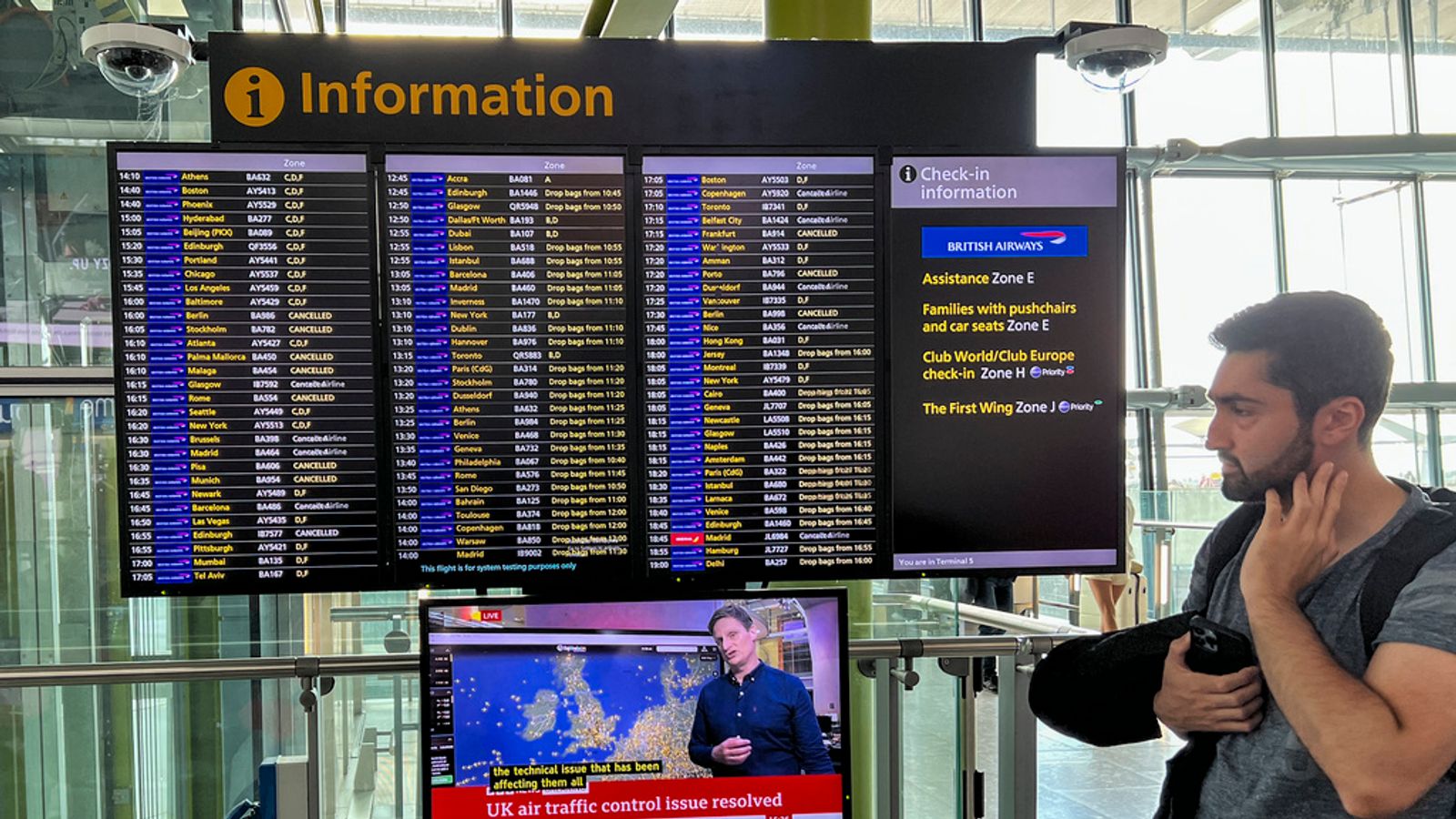The chief executive of National Air Traffic Services (NATS) has said he cannot reveal the cause of the glitch which has affected thousands of passengers but is “not ruling out anything at this stage”.
Martin Rolfe said on Tuesday evening that an initial investigation had found that the air traffic control failure was caused by flight data received.
However, he later told Sky News: “You will understand we have very complex systems, handling something in the region of two million flights a year and the safety of those passengers is incredibly important to us.
“We are not going to rush into saying what the cause is until we absolutely fully understand.”
Night flights given go ahead to ease disruption – air traffic chaos latest
Reports have suggested the chaos may have been caused after a French airline misfiled its flight plan.
Asked whether he was ruling out if a misfiled flight plan was the cause, Mr Rolfe replied: “I’m not ruling out anything at this stage.
“We are conducting an investigation, we will conduct it incredibly thoroughly.”
Despite Mr Rolfe saying he is not ruling anything out, NATS said earlier there is “no indication” it was targeted in a cyber attack.
Hundreds of flights around the UK have been cancelled after yesterday’s air traffic control disruption. The incident on Bank Holiday Monday meant flight plans had to be uploaded to systems manually, slowing or cancelling air traffic across the country.
Thousands of passengers were affected by yesterday’s disruption – and many are still waiting for their flights today.
